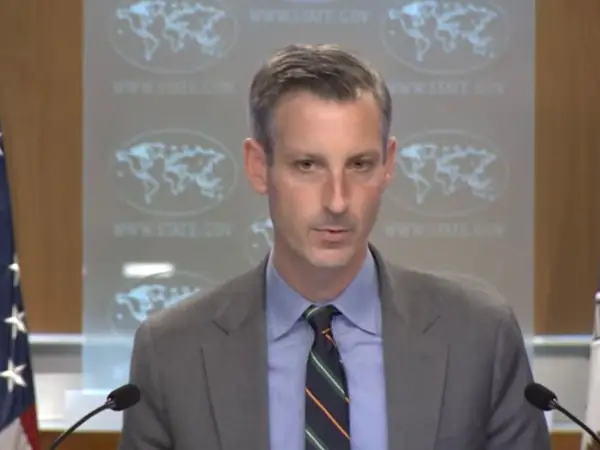Seif al-Adel, the apparent new leader of al Qaeda is in Iran, a United Nations report has said and the United States confirmed the information on Wednesday.
State Department spokesperson Ned Price was asked during his daily press briefing to comment on the UN report. He said: “Our assessment aligns with that of the UN…offering safe haven to al Qaeda is another example of Iran’s wide-ranging support for terrorism, its destabilizing activities in the Middle East and beyond.”
Asked by a reporter what the United States is ready to do if Adel is in Iran, Price said that the Biden administration is determined not to allow threats to emerge. “We have taken action against Iran for its support for terrorist group throughout the region,” he said and added that Washington will closely coordinate with European allies to confront “all the challenges Iran poses.”
Seif al-Adel, a former Egyptian special forces officer who is a high-ranking member of al Qaeda with a $10 million US bounty on his head, is now the "uncontested" leader of the militant group, according to a new U.N. report on the organization.
Al Qaeda has not formally named a successor for Ayman al-Zawahiri, who was believed to have been killed in a US missile strike in Kabul last year, dealing a blow to the organization since its founder Osama bin Laden was killed in 2011.
Although a US intelligence official said in January that Zawahiri's succession remained unclear, the United Nations report assessing risks from the group said: "In discussions in November and December, many Member States took the view that Seif al-Adel is already operating as the de facto and uncontested leader of the group."
Unlike his slain predecessors who maintained a high profile with fiery videos broadcast around the globe threatening the United States, the experts say Adel planned attacks from the shadows as he helped turn al Qaeda into the world's deadliest militant group.
Adel was indicted and charged in November 1998 by a U.S. federal grand jury for his role in the bomb attacks on the US embassies in Tanzania and Kenya that killed 224 civilians and wounded more than 5,000 others.
The US State Department had already said that Adel was based in Iran. The department’s Rewards for Justice program is offering up to $10 million for information on Adel, whom it says is a member of "al Qaeda’s leadership council” and heads the organization’s military committee.
The program’s website says that after the Africa bombings, the former Egyptian army lieutenant colonel moved to southeastern Iran, where he lived under the protection of the country's Islamic Revolutionary Guard Corps.
He and other Al Qaeda leaders were placed under house arrest in April 2003 by Iran, which released him and four others in exchange for an Iranian diplomat who was kidnapped in Yemen.
Once Osama bin Laden's chief bodyguard and a senior trainer of militants, experts on the jihadi movement say Adel began his long bloody career in 1981, when he was suspected of involvement in the assassination by Islamist soldiers of Egyptian President Anwar al-Sadat during a military parade in Cairo that was broadcast on television.
One of al Qaeda's leading military chiefs and often called by experts its third-ranking official, Adel set up training camps for the organization in Sudan, Pakistan and Afghanistan in the 1990s.
He also played a role in the ambush of US helicopters in Mogadishu, known as the "Black Hawk Down" incident in 1993 which killed 18 US servicemen, security experts say. That marked the beginning of the eventual withdrawal of a US-UN peacekeeping force from Somalia.
The FBI identifies Adel as one of its most wanted terrorists and accuses him of conspiring to kill US nationals, to murder and destroy buildings of the United States.
"He (Adel) is a very bold, professional, cold-blooded figure," said Yoram Schweitzer, head of the Program on Terrorism and Low-Intensity Conflict at Tel Aviv University’s Institute for National Security Studies.
With reporting by Reuters
